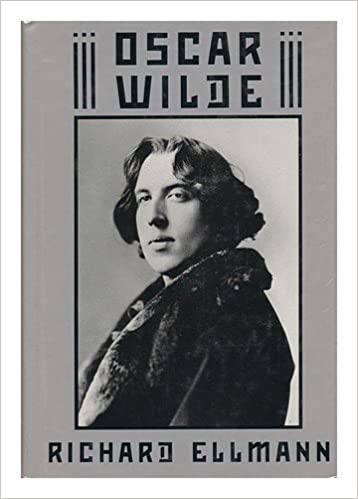3. Richard EllmannOscar Wilde

I read a lot of biography. Both Ellmann’s books are thought definitive. His life of James Joyce, which I read in the early 80s, was the first really great biography I read where I started to see that authors’ lives can be as interesting as their work. Especially if that life is told well. And it enlightens you a lot about their work, which is an obvious thing, but a biography is a thing of beauty in and of itself if it’s well-written. The last major biography Ellmann wrote was one of Oscar Wilde. I read it in London in 1987 when it came out. And the beauty of Ellman’s writing in a way matches and mimics Wilde. I knew Wilde through his plays and knew the vague outline of this life. But the story Ellmann told and the way he told it about Wilde is just incredible. I loved the subject and I loved the way that it was written. This became a golden book for me for a couple years, a great inspiration.
As with Joyce, you sense Ellmann’s affection for Wilde. You only have to read the introduction to the Wilde book – which is only like two pages – but it’s just so beautiful. There’s this great line where he talks about how Wilde was vilified in London in the 1890’s, and how so many writers who wouldn’t share a table with Wilde at that time shared pages about him in their memoirs. There was this shame of him and then they filled their own books with what they knew about him. The way he’s always been dealt with in society, by the moralists and the press, how he was vilified and dismissed, and then forever after they’ve just written about him, eulogized him and spoken about him. It’s a beautiful introduction to a great book.
I’d read Wilde’s plays in school. Not much, The Importance Of Being Earnest. To tell you the truth, I’d read a bit of The Picture Of Dorian Gray and I didn’t like it. I’ve been back to it again and I find it very stilted. I love his plays, and his letters. His plays are the main thing, I read all of them at one stage in the 90s.


